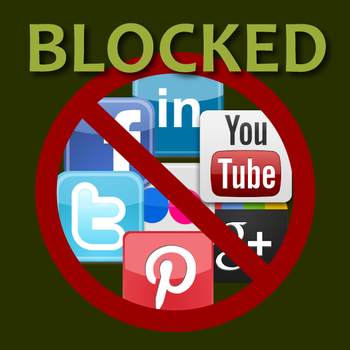These days, many businesses and companies are hiring staff specifically to run their social media, online marketing, and even their guerilla/non-traditional marketing efforts. It’s a great idea, but do these companies understand how to care for their social media staffers?

So you’ve adopted a social media staffer. Now what?
I see a lot of social media people these days that are working for places that are, in every other sense, pretty anti-social. I have colleagues who run social media channels for places that, say, manufacture tiny glass lenses for microscopes. Chances are, the new staffer’s working style will be a bit of a culture shock to those around her. The nuances of wielding new media like a skilled swordsman is something that does, indeed, require a specific skillset, interest level, and training background…but stop to consider that it may also require a certain personality. Here are some tips that may apply to your social media staffer.
Social media staffers need space to be weird
An SM Staffer is a creative soul. This is not a field where you can do something ‘by the book’, or in the same way every day, and meet with success. You’ve likely hired someone who is artistic, or creative in some other way. Respect that creativity and embrace it. I have blogged before about how much I hate wearing business clothes to my job—a job where I’m rarely seen by anyone other than my direct supervisor. It may sound silly, but your SM Staffer may do his best work when he’s wearing a Storm Trooper helmet and rubber boots. What’s the trade-off? You remind him to wear a suit on important days, and in exchange he thinks up geniusy new ideas while contemplating how the Empire could have beaten the Rebel Alliance, if only they’d built droids with more stable footwear.
Social media staffers need safety to take risks
If your SM Staffer is always afraid that she’ll get fired because a video doesn’t go viral, or because a campaign got some criticism from the local news channel, she won’t give you her craziest ideas—which are usually the best ones. Personally, I’d sooner hire an SM Staffer who’d messed up a couple times before. It means she takes chances, tries new things, and knows where the pitfalls are.

Social media staffers need flexibility
Creative souls may need to do things differently. If I had my choice, I wouldn’t have a desk at all; I’d write all day on a big fat armchair while Modern Family episodes played in the background. If you want your SM Staffer to pump out five blog posts a week, he may need to head out to Starbucks for an hour or two for a change of scene while he writes. Or maybe he wants to prepare all your scheduled tweets from home at 6:00am. Why not? Worried about reliability? Here’s a trick: the more engaged and understood your Staffer is feeling, the more likely he is to put 100% into his working day. Ruling with an iron fist is almost guaranteed to crush the very creativity you hired your SM Staffer for.
Social media staffers need to be trusted
This one is simple: if you hired an SM Staffer because you’re not a pro in social media yourself, consider trusting his judgement when he says yea or nay to an idea. If he spends 80% of his day explaining Hootsuite’s limitations to you because you won’t just trust what he’s telling you, he’s just a very expensive tutorial program.
Social media staffers need to be social
Is your SM Staffer wandering around sometimes, or texting, or following trending topics on Twitter? Again, remember: you hired her for social media. If you suck all the social out of her day, she’s going to lose touch with the very culture she’s committed to working with.

Social media staffers need training
Especially because social media is a creative field, there’s no one right way to get trained up on how to do the business. Support your Staffer in his quest to find new seminars, networking groups, and meetups (or tweetups) to attend. Most of the cool professionals I’ve used in my day job are people I’ve met at various social media learning or networking events. My socializing helps my social media. Seems obvious, I know; but many employers don’t get it.
These are just some starting tips on how to foster a happy, healthy social media staffer. Remember that you can hold someone accountable to goals and deadlines without strapping them to an office chair for eight hours at a time, and it’s okay if you don’t understand every nuance of social media, yourself. Be kind to your social media staffer, and you may have yourself a loyal, lifelong companion.
*****
Jordan Danger is a social media professional and the blogger of GIRL, CRAFTED—a lifestyle and DIY blog. She is a social media fanatic who works in marketing and communications, aspires to one day be a full-time writer. Jordan has a dream of one day being a really good cook…in the meantime, she keeps a frozen pizza on hand just in case. You can connect with Jordan via her blog, on Facebook, or on Twitter.
 We do a fair amount of speaking, often to professionals who work for government-run departments or non-profit agencies. One comment we hear over and over is, “We can’t use social media; all of the web sites are blocked at work!”
We do a fair amount of speaking, often to professionals who work for government-run departments or non-profit agencies. One comment we hear over and over is, “We can’t use social media; all of the web sites are blocked at work!”







